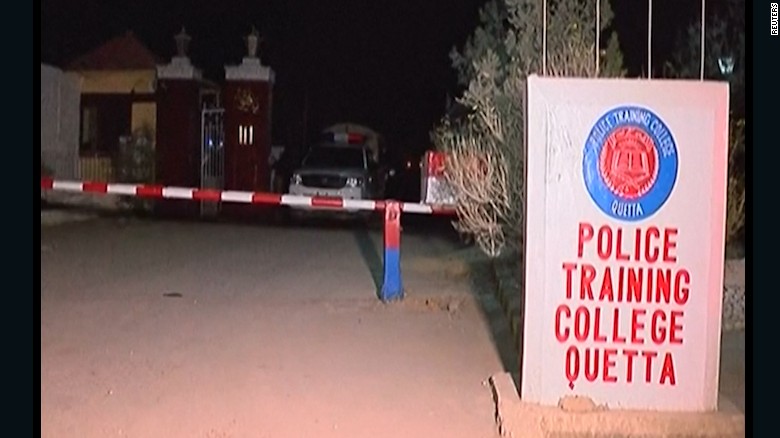Pakistan's Islamic State Problem
NEW DELHI: Security Forces have raided a compound in Quetta, Balochistan and killed four militants linked to an attack on a police academy that was carried out earlier in the week.
The raid was carried out late on Thursday after an intelligence tip off noted the presence of Lashkar-i-Jhangvi (LJ) militants. The LJ had claimed responsibility for the attack on Balochistan Police College on Monday, killing 61 people.
The LJ said they carried out the attack in coordination with the Islamic State, with the latter releasing images of the fighters involved.
The emergence of Islamic State in Pakistan -- where the group has claimed several recent attacks, including an earlier attack in Quetta that killed 73 people -- is seen as a major blow to the country's long-running efforts to quell the insurgency. In May this year, 43 Ismaili Shia Muslims were killed and 20 others injured as Jundullah “Soldiers of Allah” that swore allegiance to the Islamic State last November struck in Karachi. Jundullah spokesperson Ahmed Marwat told Reuters ,"These killed people were Ismaili and we consider them kafir (non-Muslim). We had four attackers. In the coming days we will attack Ismailis, Shi'ites and Christians." According to some reports, a blood-stained pamphlet was found at the scene in which the Islamic State itself had claimed responsibility.
Significantly, Jundullah had claimed last November that a delegation from the Islamic State had visited Balochistan. Marwat said then that the purpose of the visit was to see how it could work to unite Pakistani militant groups. This was just after Jundullah had announced it allegiance to IS. The military offensive against the militants has proven to be a double edged sword in Pakistan. On the one hand it has weakened and splintered the militant organisations, and on the other as a result of this has led them to seek new coalitions with the Islamic State clearly cashing in on the opportunity to enter both Pakistan and Afghanistan through the two outfits of the Taliban respectively, and their offshoots.
Earlier, the provincial government of Balochistan had conveyed a confidential report to the federal government and law enforcement agencies warning of increased footprints of IS, also known by the Arabic acronym Daish, in Pakistan.
"It has been reliably learnt that Daish has offered some elements of Lashkar-e-Jhangvi (LeJ) and Ahl-e-Sunnat Wai Jamat (ASWJ) to join hands in Pakistan. Daish has also formed a ten-member Strategic Planning Wing," the report from the Home and Tribal Affair Department of Balochistan had said according to the Pakistani journalists.
Again, the reports may be exaggerated, but the appeal of the Islamic State should not be underestimated. Even if the links are tenuous at this stage they could become more concrete, permanently altering the nature of militancy in South Asia and setting the stage for the first truly global terror movement.





